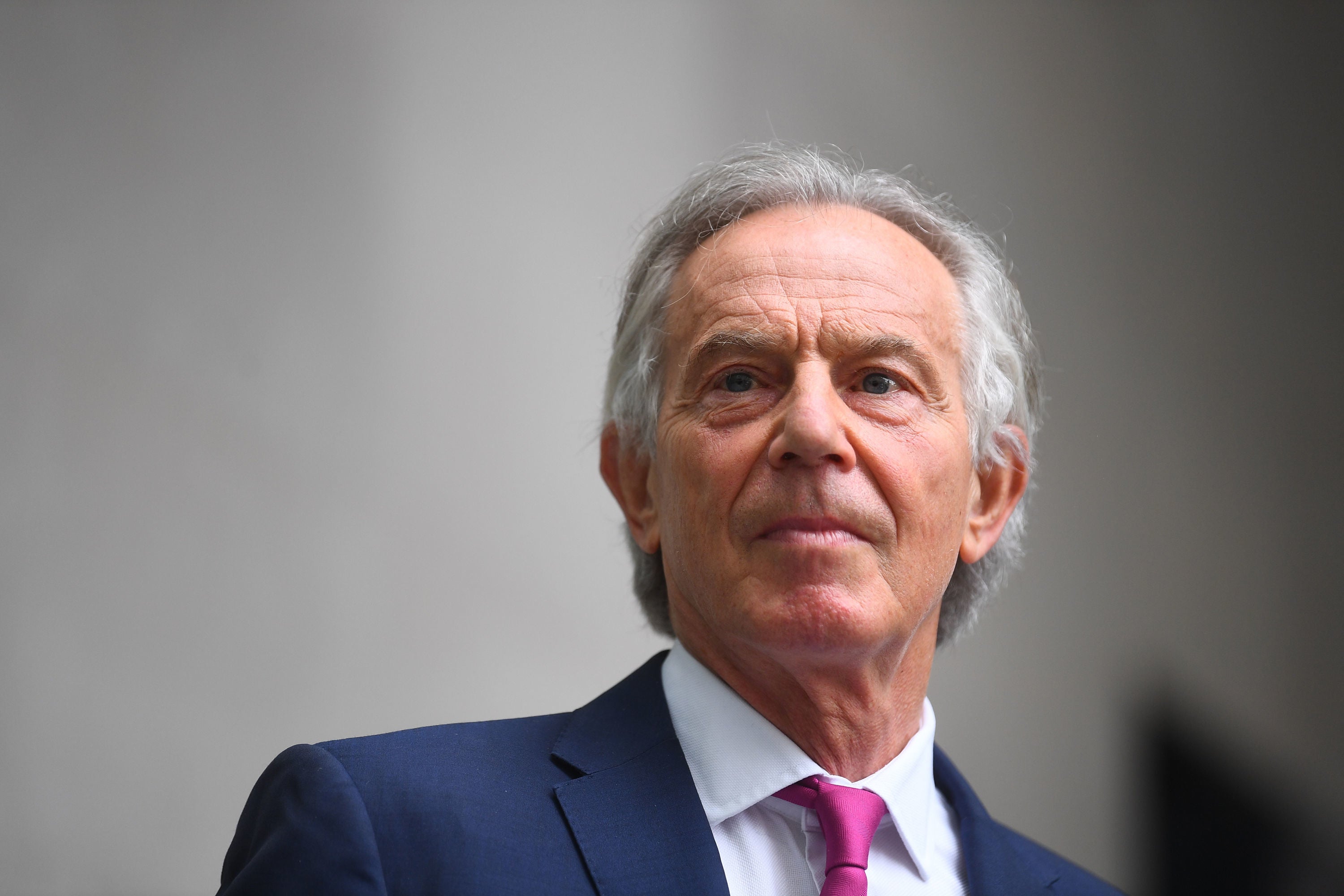Wouldn’t we rather hear advice from Tony Blair than David Cameron?
This week, the two former prime ministers offered their thoughts on what they would do if they were still in No 10, writes John Rentoul


They were both the future once, but what is interesting is that Tony Blair has re-overtaken David Cameron to become relevant again. Both former prime ministers have been offering their advice to their successors this week, but one of them, I humbly submit, was more useful than the other.
Cameron was interviewed by Andrew Marr yesterday on LBC, whereas Blair has submitted himself to interrogation by Michael Sheen, the actor who has played him three times, for the New Statesman.
Cameron, as the more recent leader, had to spend more of his interview defending his record, as Marr asked him about a Russian donor who paid £160,000 to play tennis with him. Cameron’s defence was robust. “It’s a giant red herring to suggest that Russian money somehow influenced policy against Putin in Russia,” he said. “We had a far tougher policy than other countries. Go and ask the Baltic ministers and prime ministers; ask the Poles; ask the people who sat in the room with me in the European Council knowing I was their strongest ally, in building a really robust case, to hold Putin to account.”
The idea that Russian money means that the British government is soft on Putin makes no sense. As Cameron said: “If they were trying to buy something they didn’t really get it, did they?”
Rather like Blair, he may be right, but he has little chance of persuading much of the media and public opinion of his case. But it is when the former leaders offer their advice to today’s government that the contrast between them becomes apparent.
Cameron was asked what he would ask his chancellor to do about the “huge squeeze in living standards” that he thought was imminent. He tried to deflect the question. “I’ve tried not to give a running commentary; it’s hard enough being prime minister without having all your predecessors endlessly giving you suggestions.”
But he went on to offer his advice anyway. “You’ve got to keep the cost of government down, because ultimately if you can keep the cost of government down, keep people’s taxes down, you help them through the cost-of-living crisis.”
Thanks Dave, we can almost hear Boris Johnson and Rishi Sunak say. We hadn’t thought of that. We’ll bear it in mind. When Cameron was in No 10 he was sometimes rather unfairly described, including by me, as the essay-crisis prime minister, but on this occasion he wasn’t even answering the exam question.
Which “cost of government” would Cameron suggest be kept down? The defence budget? The money for the NHS backlog? International development? The budget for schools catch-up? If he is suggesting cancelling the national insurance rise next month, how would he fill the gap, or should we just borrow more?
Compare the triviality of “keep spending down to cut taxes” with the advice offered to the government by Blair. The whole of his New Statesman interview has not been published yet, but in the extract released today Sheen pressed him on whether he wants to return as prime minister because, after all, William Gladstone formed his fourth ministry at the age of 83.
Blair engaged in his own deflection: “I don’t think that route would be open to me, even if I wanted it.” He said he hoped “the next Labour prime minister will be someone else, hopefully Keir”. He continued: “What I would like to do is help on the policy side with the next Labour government.”
To keep up to speed with all the latest opinions and comment, sign up to our free weekly Voices Dispatches newsletter by clicking here
He didn’t offer much by way of this help in the extract, except to say that the next Labour government had to have “a platform that makes people think the world’s going to change” – but “it’s just got to be the sort of change they’re not frightened of”. But Blair has offered a lot of advice to the government – or to anyone wanting to form the next government – recently.
Just last week, his institute published a paper on energy policy that was better than anything the government has produced, and miles better than anything produced by the Labour Party. It didn’t have magic answers to the problem of Britain’s indirect dependence on Russian natural gas – we don’t import much directly from Russia, but if Russian supplies to Europe were shut down, the price of what we import from Norway would go up even more. But it did set out the options with clarity.
Similarly, Blair’s recent speech on the three challenges facing the country – Brexit, the technology revolution and net zero carbon – offered the kind of clear and imaginative thinking that governments (and oppositions) need. He tried to look ahead past the receding crisis of the pandemic, and before the next crisis of war in Europe, to the long-term issues that will decide our future.
Again, he didn’t have all the answers, but at least, instead of a mindless slogan like “cut taxes”, he offered thoughts about some of the hard choices ahead – choices that will still lie ahead when Putin is no longer president of Russia.
Still, at least Cameron’s advice to Boris Johnson was more constructive than last month’s contribution from John Major, who was the future even longer ago. His advice to Johnson was essentially: “Resign!”






Join our commenting forum
Join thought-provoking conversations, follow other Independent readers and see their replies
Comments